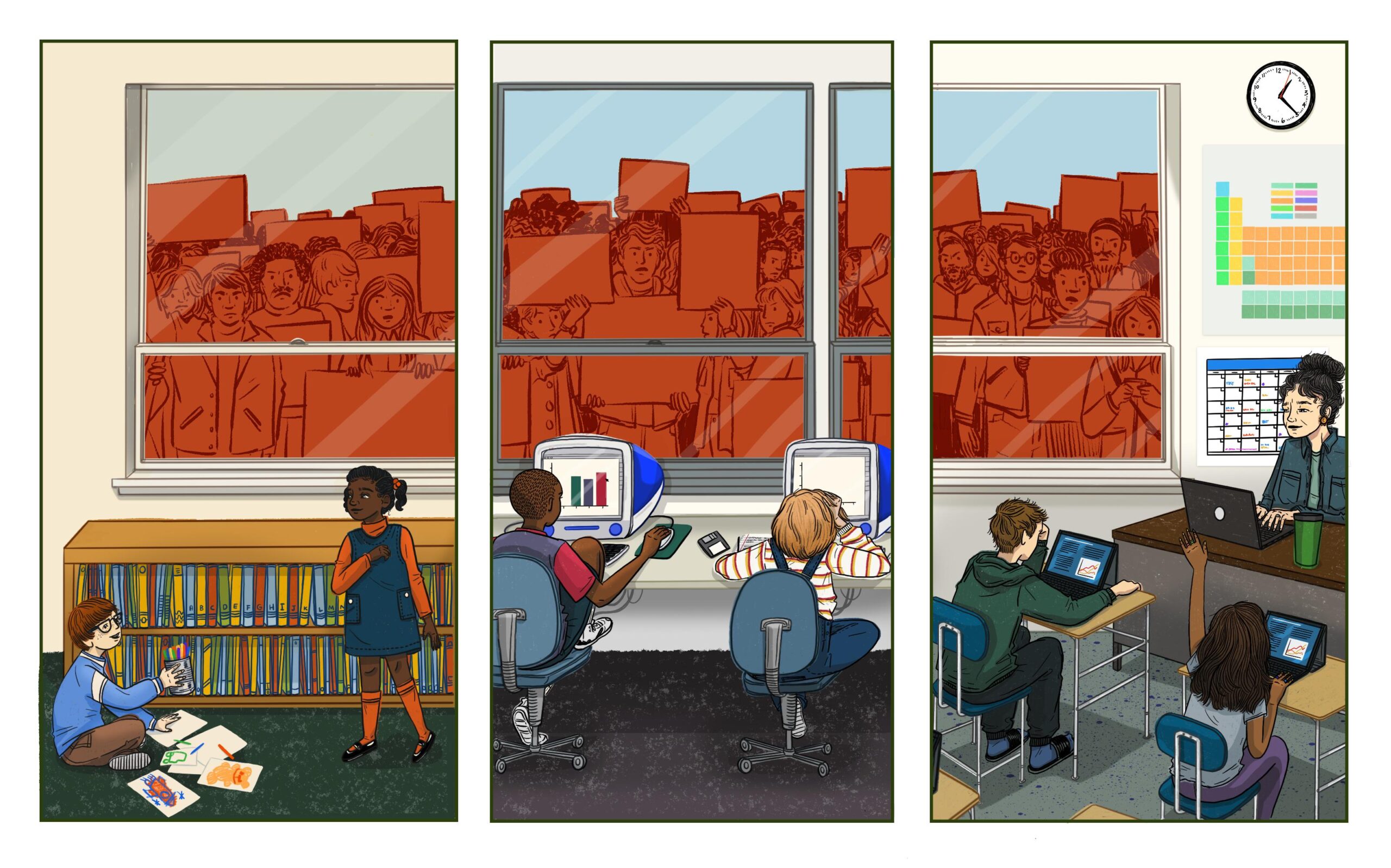Future Directions for SEL in Schools: Emerging Strategies and Key Trends
In today’s rapidly evolving educational landscape, fostering students’ social and emotional skills remains paramount. Social and Emotional Learning (SEL) is more than just a tool for improving student behavior—it’s a foundational approach driving academic achievement, well-being, and personal growth. as research and practice evolve, future directions for SEL in schools are becoming increasingly innovative. Dive in to discover the latest emerging strategies, key trends, and transformative possibilities shaping SEL for years to come.
What is Social and Emotional learning (SEL)?
SEL is the process through wich children and adults acquire and effectively apply the knowledge, skills, and attitudes to:
- Understand and manage emotions
- Set and achieve positive goals
- Show empathy for others
- Establish and maintain positive relationships
- Make responsible decisions
Implementing SEL programs in schools not only improves students’ emotional intelligence but also fosters a caring and inclusive academic habitat.
Emerging Strategies in SEL Implementation
With the growing focus on holistic education, several innovative SEL strategies are gaining traction in schools worldwide. Here are some of the future-focused SEL approaches gathering momentum:
1.Integrating SEL Across the Curriculum
Rather than being confined to a single class, modern SEL is integrated throughout various subjects. for example, literature classes can explore empathy via character analysis, while science can address group collaboration.
2. Leveraging Technology for SEL
- SEL Apps and Platforms: A growing number of edtech tools now offer SEL support, from digital mindfulness apps to emotion-tracking platforms.
- Remote and Hybrid Learning: Technology bridges gaps created by distance, helping students stay connected and emotionally supported.
3. Focusing on Equity and Cultural Responsiveness
Modern SEL strategies emphasize inclusiveness, ensuring cultural relevance in lessons and resources.This trend helps address diverse student backgrounds and prevents bias in SEL programming.
4. Family and Community Engagement
Accomplished SEL initiatives reach beyond the classroom, involving families and community partners.Schools are now co-creating SEL objectives with parents and local organizations, strengthening student support networks.
5. Trauma-Informed Approaches
Recognizing the impact of trauma, especially post-pandemic, schools are integrating trauma-responsive practices. These ensure all students have safe spaces to express themselves and develop resilience.
6. Data-Driven SEL Practices
- Utilizing real-time feedback to adjust instruction
- Evaluating program effectiveness with SEL assessment tools
- Personalizing support for students based on data insights
Key trends Shaping the Future of SEL in Schools
As SEL faces the next decade, certain trends stand out as game changers in education. Understanding these key SEL trends can help educators and administrators make informed decisions.
- Systemic SEL: Moving from isolated programs to thorough, school-wide practices embedded in policies, routines, and culture.
- Adult SEL: Supporting teachers’ and staff’s own social-emotional well-being to model healthy behaviors for students.
- Explicit Skill building: A shift toward explicit, skills-based SEL instruction, ensuring students acquire concrete competencies like conflict resolution, self-awareness, and responsible decision-making.
- Inclusive Measurement: Emphasis on measuring SEL progress holistically with both qualitative and quantitative tools.
- Student Voice and Agency: Empowering students to lead SEL initiatives, engage in peer-to-peer support, and reflect on their growth.
- SEL for Career Readiness: Aligning SEL skills with future workforce needs, preparing students for success beyond graduation.
Benefits of Embracing Future-Focused SEL Strategies
Investing in innovative and research-backed SEL strategies delivers long-term benefits, including:
- Improved Academic Outcomes: SEL correlates with higher test scores, improved grades, and stronger graduation rates.
- Positive School climate: Proactive SEL leads to improved relationships and a more inclusive, respectful culture.
- Decreased Behavioral Issues: Schools that prioritize SEL see reductions in bullying, disciplinary referrals, and absenteeism.
- Enhanced Emotional Resilience: Students gain tools to cope with stress,anxiety,and change.
- Greater Teacher Satisfaction: Teachers in SEL-focused environments report stronger job satisfaction and well-being.
Practical Tips for Implementing SEL’s Future directions
- Conduct a Needs Assessment: Evaluate current SEL practices and identify areas for growth.
- Involve Stakeholders: Involve students, families, and community members for greater buy-in and relevance.
- prioritize Professional Advancement: Offer regular training for staff on new SEL tools, trauma-informed care, and data use.
- Utilize Technology Purposefully: Select SEL technology that aligns with your school’s vision and integrates privacy and accessibility.
- Foster a Culture of Continuous improvement: Regularly collect feedback and adapt approaches as needed.
Case Study: Transforming a School with Next-Gen SEL
At Lincoln Middle School, administrators embraced a district-wide SEL overhaul.By integrating SEL in every lesson, leveraging a digital mindfulness platform, and actively involving parents in workshops, they achieved remarkable growth:
- School climate survey scores rose by 25%
- Disciplinary incidents decreased by 40%
- Teacher retention rates improved year-over-year
Their approach underscores the value of combining emerging SEL strategies and key trends for lasting, positive change.
First-Hand experiance: An Educator’s Perspective
“When we shifted to a comprehensive SEL model,I noticed students more eager to participate and help each other,” shares Ms. Rivera, a 5th-grade teacher in New York City. “By weaving SEL into our routines and lessons, and embracing tech-based mindfulness breaks, my students felt more connected and confident. it truly transformed our classroom culture.”
conclusion: Leading the Way for SEL’s Next Chapter
As schools around the world adapt to changing times, future directions for SEL in schools hold the promise of nurturing whole, empowered learners ready for tomorrow’s opportunities and challenges.Through integrated curriculum design, technology integration, and a commitment to equity and student voice, educators can ensure SEL remains a driving force in educational excellence.
Embracing these emerging strategies and key SEL trends, schools not only boost academic and emotional success but also shape communities were every student thrives. Now’s the time to invest in SEL’s future—because when students grow, so does society.

